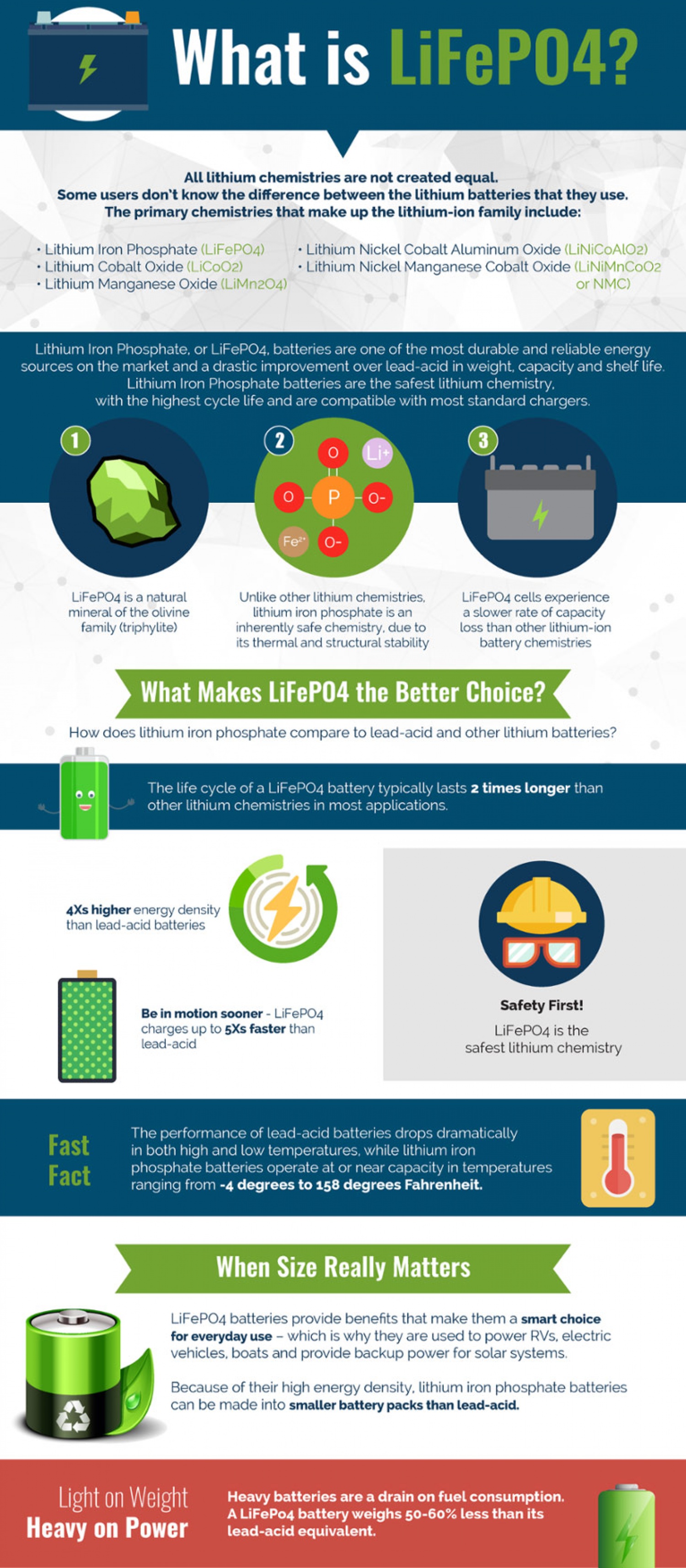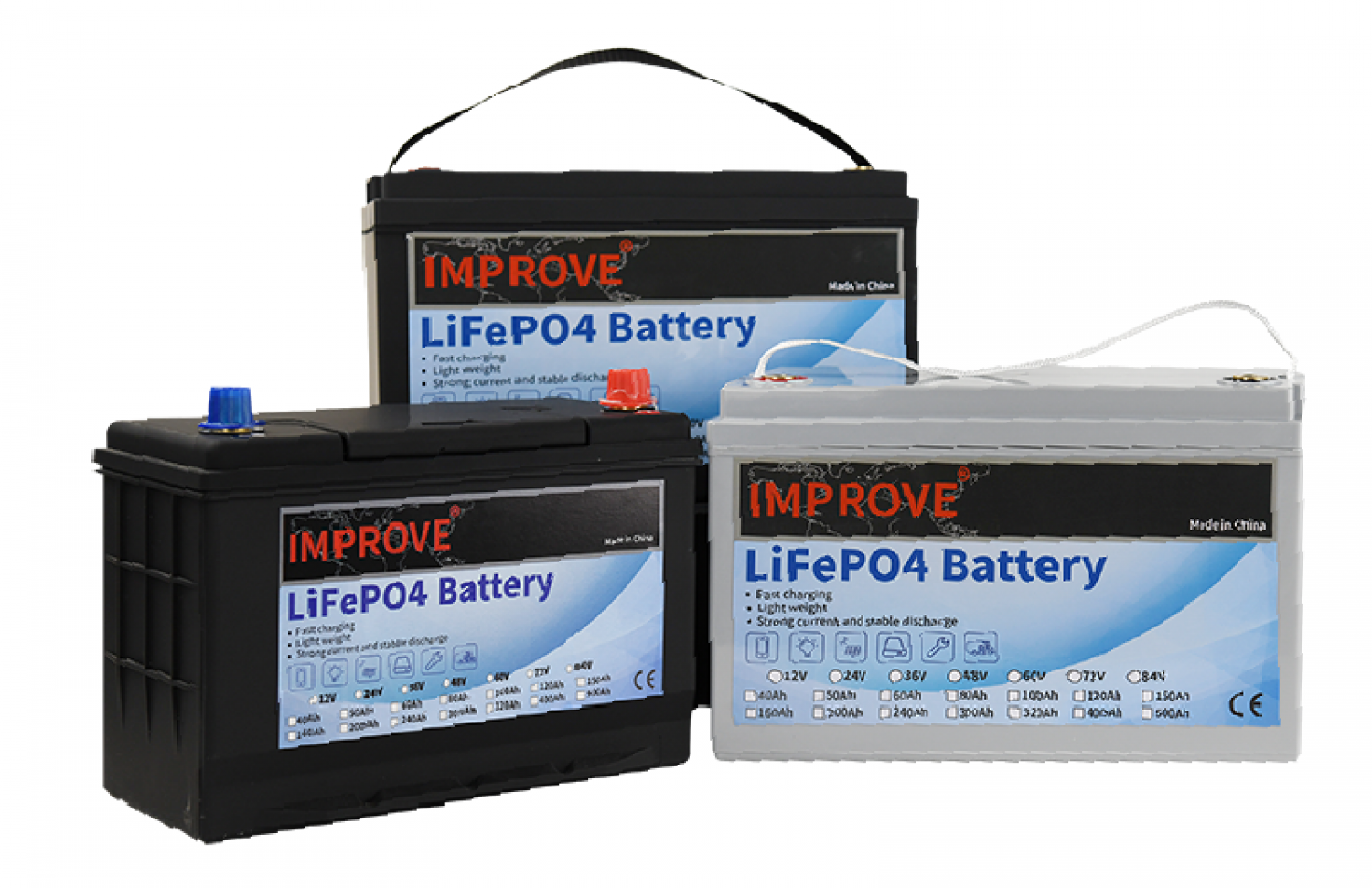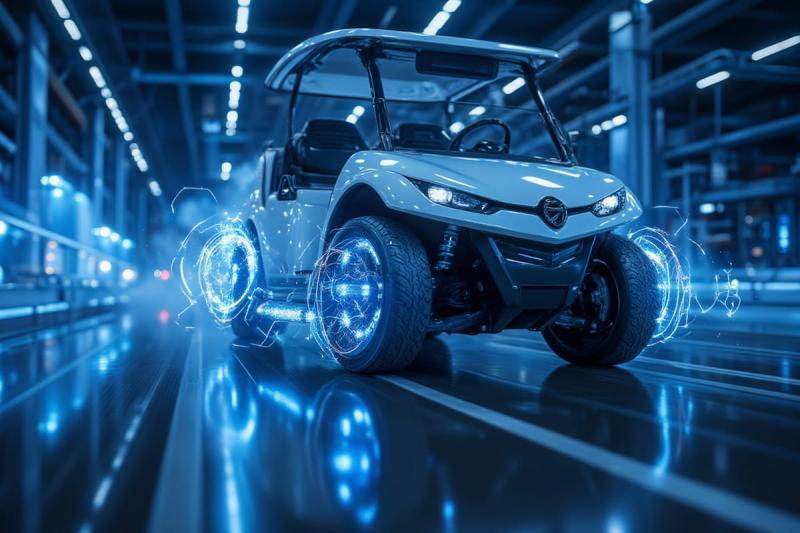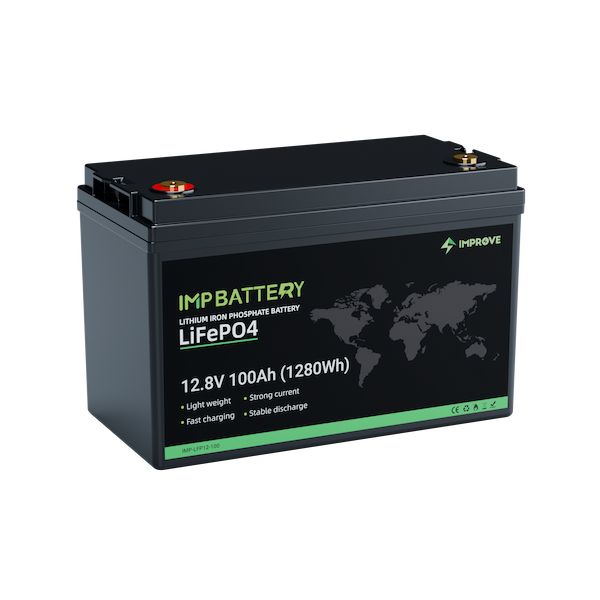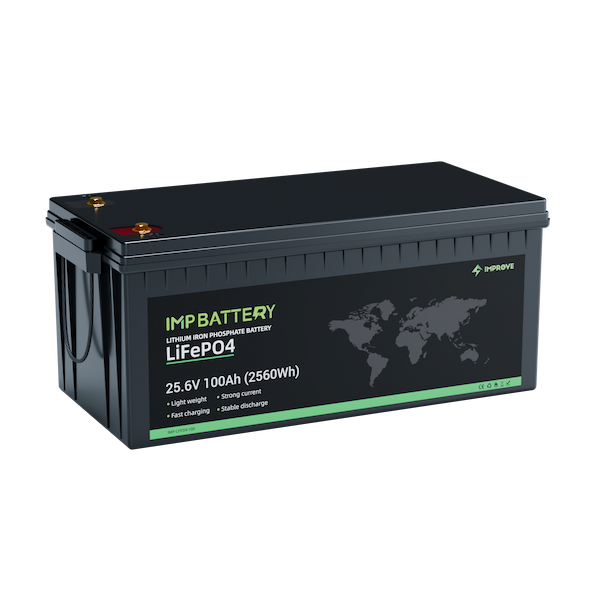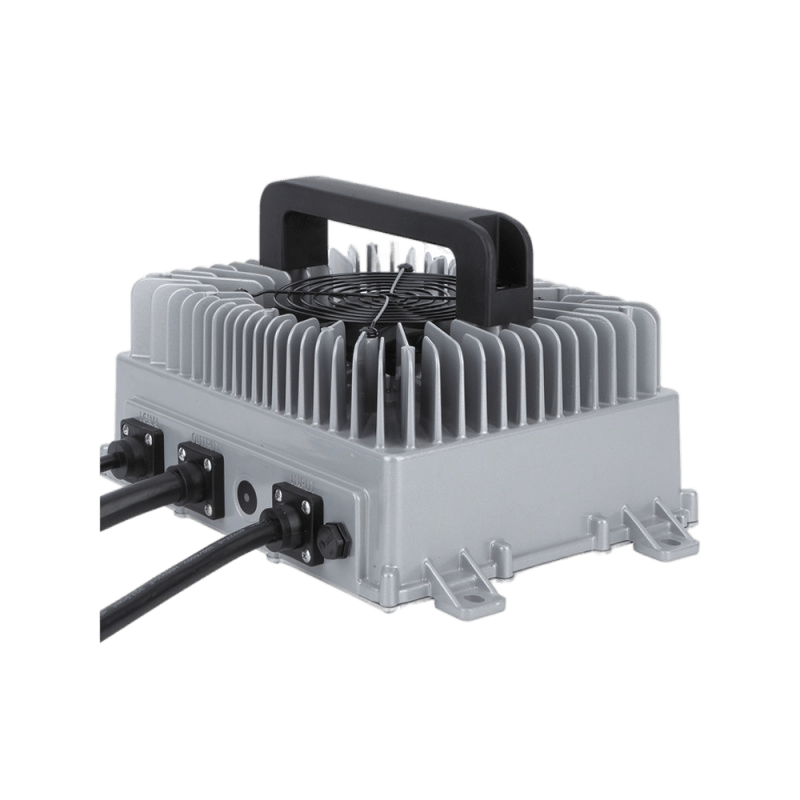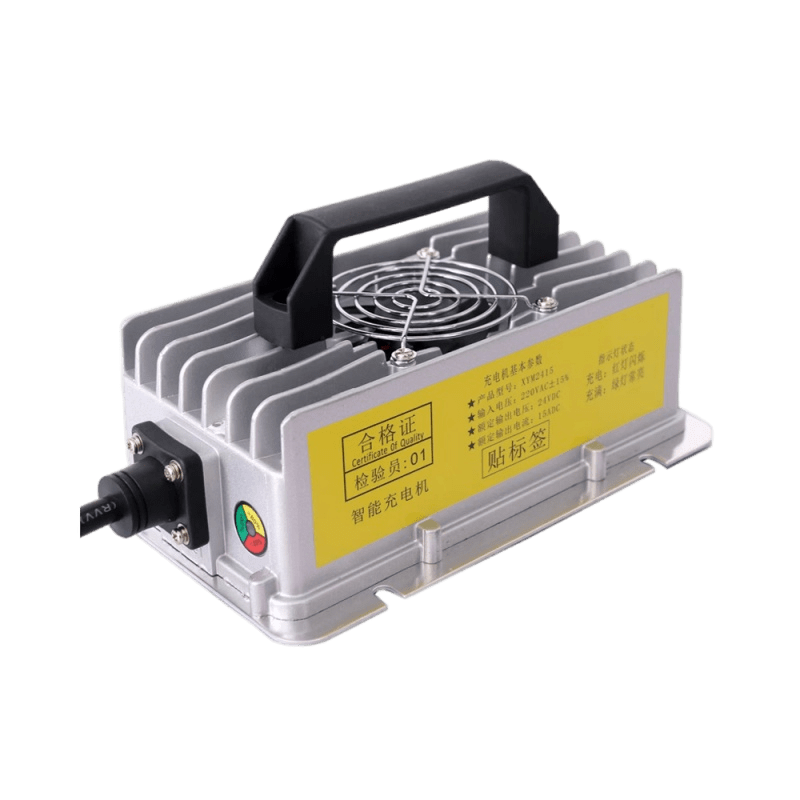All lithium chemistries are not created equal. In fact, most American consumers – electronic enthusiasts aside – are only familiar with a limited range of lithium solutions. The most common versions are built from cobalt oxide, manganese oxide and nickel oxide formulations.
First, let’s take a step back in time. Lithium-ion batteries are a much newer innovation and have only been around for the last 25 years. Over this time, lithium technologies have increased in popularity as they have proven to be valuable in powering smaller electronics – like laptops and cell phones. But as you may recall from several news stories over recent years, lithium-ion batteries also gained a reputation for catching fire. Until recent years, this was one of the main reasons lithium wasn't commonly used to create large battery banks.
But then came along lithium iron phosphate (LiFePO4). This newer type of lithium solution was inherently non-combustible, while allowing for slightly lower energy density. LiFePO4 batteries were not only safer, they had many advantages over other lithium chemistries, particularly for high power applications.
Although lithium iron phosphate (LiFePO4) batteries aren’t exactly new, they’re just now picking up traction in Global commercial markets. Here’s a quick breakdown on what distinguishes LiFePO4 from the other lithium battery solutions:
Safety And Stability
LiFePO4 batteries are best known for their strong safety profile, the result of extremely stable chemistry. Phosphate-based batteries offer superior thermal and chemical stability which provides an increase in safety over lithium-ion batteries made with other cathode materials. Lithium phosphate cells are incombustible, which is an important feature in the event of mishandling during charging or discharging. They can also withstand harsh conditions, be it freezing cold, scorching heat or rough terrain.
When subjected to hazardous events, such as collision or short-circuiting, they won’t explode or catch fire, significantly reducing any chance of harm. If you’re selecting a lithium battery and anticipate use in hazardous or unstable environments, LiFePO4 is likely your best choice.
Performance
Performance is a major factor in determining which type of battery to use in a given application. Long life, slow self-discharge rates and less weight make lithium iron batteries an appealing option as they are expected to have a longer shelf life than lithium-ion. Service life usually clocks in at five to ten years or longer, and runtime significantly exceeds lead-acid batteries and other lithium formulations. Battery charging time is also considerably reduced, another convenient performance perk. So, if you’re looking for a battery to stand the test of time and charge quickly, LiFePO4 is the answer.
Space Efficiency
Also worth mentioning is LiFePO4’s space-efficient characteristics. At one-third the weight of most lead-acid batteries and almost half the weight of the popular manganese oxide, LiFePO4 provides an effective way to make use of space and weight. Making your product more efficient overall.
Environmental Impact
LiFePO4 batteries are non-toxic, non-contaminating and contain no rare earth metals, making them an environmentally conscious choice. Lead-acid and nickel oxide lithium batteries carry significant environmental risk (especially lead acid, as internal chemicals degrade structure over team and eventually cause leakage).
Compared to lead-acid and other lithium batteries, lithium iron phosphate batteries offer significant advantages, including improved discharge and charge efficiency, longer life span and the ability to deep cycle while maintaining performance. LiFePO4 batteries often come with a higher price tag, but a much better cost over life of the product, minimal maintenance and infrequent replacement makes them a worthwhile investment and a smart long-term solution.
Check out our latest infographic with more details on what makes lithium iron batteries the best choice for your application.
